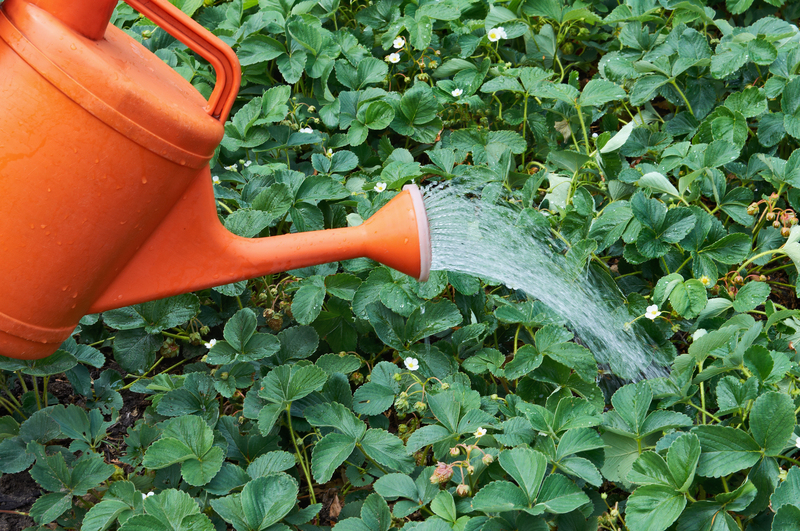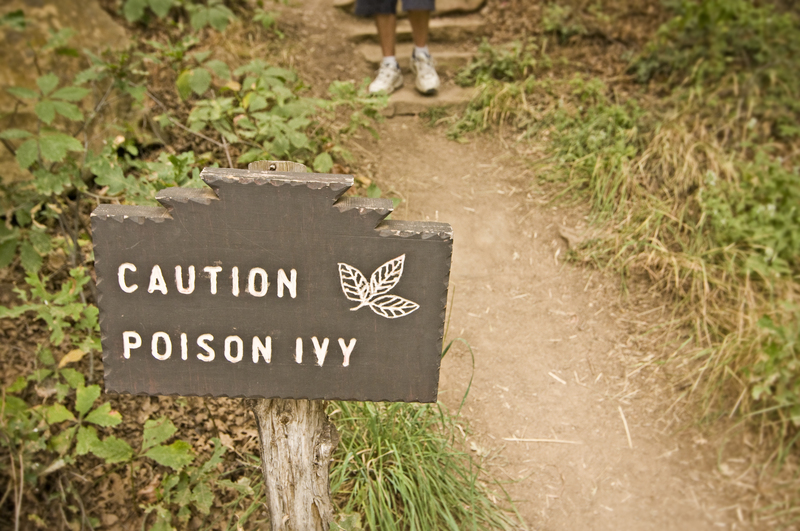Rooting for Beginners: 9 Essential Gardening Insights
Posted on 18/09/2025
Rooting for Beginners: 9 Essential Gardening Insights
Gardening is an enriching and therapeutic hobby, rewarding you with beauty, fresh produce, and a strong sense of achievement. If you've ever gazed at flourishing gardens and wondered how to get started, you're not alone. In this comprehensive guide, we'll unveil 9 essential gardening tips for beginners, equipping aspiring green thumbs with the knowledge to turn any patch of soil into a thriving oasis. Whether your goal is to nurture ornamental plants or harvest home-grown vegetables, these beginner gardening insights will pave the way to successful rooting.
1. Understanding Your Space: Assess Your Garden's Potential
Before planting a single seed, take time to evaluate the environmental conditions of your garden. Start by observing the following:
- Sunlight Exposure: Does your outdoor space get full sun (6+ hours), partial sun, or shade? Different plants thrive in different light conditions.
- Soil Type: Feel and examine your soil. Is it sandy, clayey, silty, or loamy? Each type has unique drainage and nutrient characteristics.
- Space Constraints: Measure how much space you have, taking into account the needs of mature plants.
- Weather and Climate: Know your hardiness zone to select plants suited to temperature extremes and precipitation patterns.
Rooting for beginners begins with understanding that every garden is a unique ecosystem. Designing your gardening plans around the strengths and limitations of your location increases your odds of success.

2. Choosing the Right Plants: Start With Beginner-Friendly Varieties
If you're new to gardening, select plants that are reliable, easy to grow, and resilient. Consider these starter-friendly choices:
- Herbs: Basil, mint, parsley, and chives thrive even in containers and provide a quick return.
- Vegetables: Lettuce, tomatoes, radishes, and beans are popular with novice vegetable gardeners.
- Flowers: Marigold, sunflowers, zinnias, and pansies are forgiving and add color to your plot.
- Succulents: For those with little time, succulents need minimal care and are perfect for windowsills.
Tip: Always read plant labels and seed packets for guidance on care and spacing. Start small--it's better to nurture a few healthy plants than become overwhelmed by too many.
3. Mastering the Art of Soil Preparation
Healthy soil is the backbone of every successful garden. Here's how beginners can create an ideal foundation for plants to root and thrive:
- Clear Debris: Remove weeds, rocks, and any rubbish from the planting area.
- Test the Soil: Home soil test kits reveal pH and nutrient levels, guiding your fertilizer regime.
- Enrich with Organic Matter: Blend in compost or well-rotted manure to boost fertility and improve texture.
- Loosen the Soil: Use a garden fork or tiller to aerate compacted soil, aiding root penetration.
Understanding your soil and amending it accordingly is one of the top rooting basics for beginners. A well-prepared bed rewards you with robust, healthy growth.
4. Watering Wisely: Avoiding Common Pitfalls
Watering is deceptively simple yet can make or break your early gardening experiences. Follow these expert insights:
- Water Deeply, Not Frequently: Shallow, frequent watering encourages weak surface roots. Instead, let water soak deep to foster strong, healthy root systems.
- Time It Right: Water early in the morning to minimize evaporation and prevent fungal diseases.
- Check Moisture Levels: Stick a finger into the soil; if it feels dry 2-3 inches down, it's time to water.
- Avoid Wetting Leaves: Water at the base to prevent mildew and leaf spots.
Pro Tip: Adjust your watering schedule according to the season and rainfall--overwatering is just as harmful as parched roots.
5. Fertilizers and Feeding: Understanding Plant Nutrition
Plants draw essential nutrients from the soil, and replenishing them is key for optimal growth:
- Compost: The best natural fertilizer, rich in a broad spectrum of nutrients.
- Balanced NPK: Commercial fertilizers list a ratio for Nitrogen, Phosphorous, and K (potassium). For beginners, a balanced feed (like 10-10-10) is usually safe.
- Slow Release vs. Liquid Feed: Granulated, slow-release fertilizers offer convenience, while liquid feeds provide a quick boost.
Tip: Too much fertilizer can harm your plants. Start conservatively, always follow package directions, and prioritize organic matter whenever possible.
6. Seasonal Planning: Timing Your Planting for Success
Every seasoned gardener knows that timing is everything. Here's how to get it right:
- Frost Dates: Check your region's last spring frost and first autumn frost. These dates guide when to sow seeds or transplant.
- Succession Planting: Stagger plantings so you enjoy continual harvests rather than a glut all at once.
- Crop Rotation: Vary what you plant in a plot each year to minimize pests and prevent nutrient depletion.
Integrating these seasonal rooting strategies for beginners keeps your garden productive, year after year.
7. Managing Pests and Healthy Plant Protection
Boldly tackling pests early ensures plants can root and grow without becoming dinner for unwelcome insects:
Common Organic Solutions:
- Hand Picking: Sometimes, nothing beats simply removing larger pests, like caterpillars or beetles, by hand.
- Neem Oil & Soap Sprays: Non-toxic deterrents that work on aphids, mites, and other soft-bodied pests.
- Companion Planting: Grow marigolds, basil, or nasturtiums near vegetables to naturally ward off certain bugs.
- Physical Barriers: Use row covers or netting for precious seedlings.
Disease Prevention:
- Good Air Circulation: Avoid crowding plants.
- Sanitation: Clear fallen leaves, prune unhealthy growth, and sterilize tools between uses.
Remember, a healthy, well-rooted plant is less susceptible to stress and attack from pests and diseases.
8. Mulching: The Secret to Strong Roots and Less Maintenance
Mulching is a game-changer for beginners learning about optimal rooting:
- Moisture Retention: A 2-3 inch layer of mulch slows evaporation, reducing how often you must water.
- Weed Suppression: Mulch inhibits weed growth, freeing up nutrients and time for you.
- Soil Improvement: Organic mulches like bark, straw, or shredded leaves decompose and feed your soil.
- Regulation of Soil Temperature: Mulch protects roots from temperature swings, especially in season transition periods.
Whether you're rooting in a new garden or beautifying flowerbeds, mulching is a beginner's best friend.
9. Patience, Observation, and Continuous Learning
Gardening for beginners isn't a sprint--it's a journey. Expect to encounter challenges, celebrate small wins, and constantly discover something new about plants, soil, and yourself. Here's how to maximize your gardening success:
- Keep a Garden Journal: Record dates, observations, and adjustments. Next season, you'll learn from your own notes.
- Observe Changes: Routinely walk your garden. Notice color changes, new growth, and early signs of trouble.
- Ask, Research, Repeat: Don't hesitate to seek answers from local nurseries or online gardening communities.
- Enjoy the Process: Sometimes, nature refuses to follow our plans. Embrace surprises and let your garden teach you over time.
Remember: Gardening is an ongoing learning experience. Even the most successful gardeners started as beginners who weren't afraid to root, experiment, and grow.
Bonus Tip: Gardening Tools Every Beginner Should Have
Your hands will do much of the joyful work, but these essential tools make rooting and nurturing plants far easier:
- Trowel: For digging, planting, and transplanting small plants.
- Hand Fork: Loosens soil and removes weeds close to delicate roots.
- Pruners: Necessary for trimming and encouraging healthy plant shape.
- Watering Can or Hose with Adjustable Nozzle: Controls flow and reduces water waste.
- Gloves: Protects from thorns, blisters, and mud.
- Wheelbarrow or Bucket: Transports soil, compost, and plant trimmings with ease.
Start simple; as your confidence and garden expand, you can add specialty tools as needed.

Frequently Asked Questions: Rooting for Beginners
What does 'rooting' mean in gardening?
Rooting simply refers to the process of plants establishing roots in the soil or a medium, which allows them to absorb water and nutrients. For beginners, supporting strong rooting is the foundation of a healthy, resilient garden!
How do I know if my plants have rooted successfully?
Look for new growth above the soil, resistance when you tug gently, and healthy, vibrant foliage. Wilted or yellow leaves may signal root issues--investigate and adjust as necessary.
Can I root plants from cuttings?
Yes! Many herbs, houseplants, and shrubs propagate willingly from cuttings. Simply snip a healthy stem, remove lower leaves, dip in rooting hormone (optional), and plant in damp soil or water. Success will depend on the plant type.
Conclusion: Start Rooting, Start Growing
Transitioning from a gardening novice to a knowledgeable grower is easier than you might think. With these nine essential rooting and gardening insights for beginners, you have the groundwork to cultivate not only plants, but also confidence and joy. Every garden started with a single seed--yours can too. So arm yourself with patience, curiosity, and a willingness to embrace the process. The green world is waiting for you. Happy gardening!
Ready to put these insights into practice? Share your beginner gardening experiences or questions in the comments below and join the ever-growing community of first-time gardeners rooting for success!
Latest Posts
Revitalize Your Home with Vertical Gardening
Defensive Planting: Overcoming Wind in Your Outdoor Space
Rooting for Beginners: 9 Essential Gardening Insights
Transform Your Landscape with Unique Hedge Trimming Techniques

